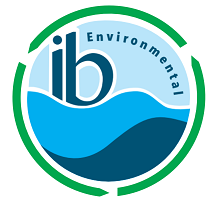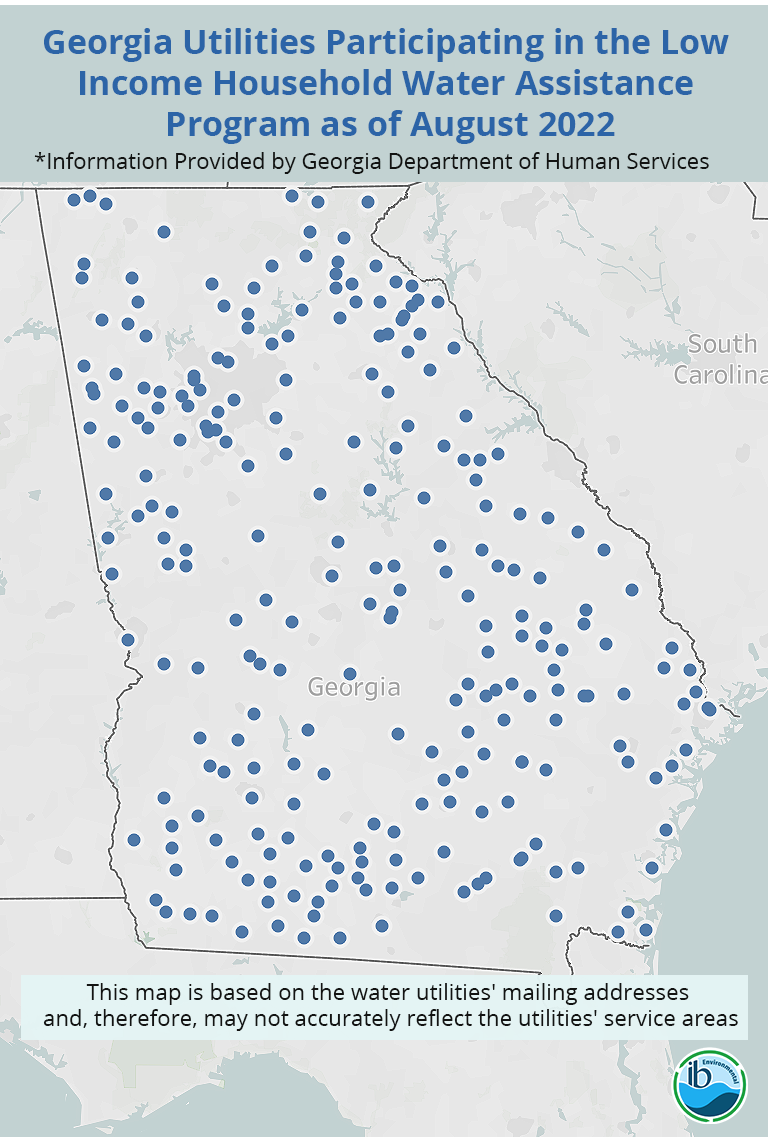The Low-Income Household Water Assistance Program (LIHWAP) emerged as a pivotal but temporary initiative to aid low-income households with their water, wastewater, and stormwater bills. This historic program was the first federal program of its kind to assist with water bills, and was created in the wake of the COVID-19 pandemic. What would its termination now mean?
Read MoreDuring the COVID-19 pandemic, the Low-Income Household Water Assistance Program (LIHWAP), a temporary relief program, was created and funded. This was the first time that an assistance program, specifically for water, had been created. Congress appropriated $1.13 billion under the Consolidated Appropriations Act of 2021 and the American Rescue Plan Act of 2021. Georgia received $37,173,132 to launch its LIHWAP program. As of June 30, 2022, 282 water utilities in the state are participating in the program that helps customers with their water bills. Is it too late for your utility to be one of them?
Read MoreSince the Flint, Michigan water crisis, there has been heightened awareness concerning the dangers of lead and how exposure to this poisonous metal affects the human body. Based on the proposed amendments to the EPA’s Lead and Copper Rule Revisions (LCRR), there are as many as 9.3 million lead service lines (LSLs) in use across the United States. With water woven into the list of top priorities for the federal government, lead in water has become a main focus in proposed funding packages such as the American Jobs Plan, which proposes allocating $45 billion to fully replacing LSLs across the country.
Read MoreThe last year has brought numerous challenges, many of which have financial impacts. But with some of those challenges come opportunities. The fight to curb the spread of COVID-19 has highlighted the importance of a well-functioning and well-funded water sector. The economic stimulus packages that the pandemic has spawned include opportunities for new careers as the nation’s infrastructure gets an upgrade. In the case of water infrastructure, the upgrade is much needed in many cases. This post outlines some of the new financing options that Georgia local governments can tap into for water projects.
Read MoreWater is such a universally essential service, that many utilities seek ways to help their low-income customers with affording the service. Generally referred to as a “customer assistance program” or CAP, this help can take different forms. Some utilities assist by repairing leaks and retrofitting low-income customers’ homes with water efficient devices. But, the more common approach is to provide some sort of financial assistance. For example, a special payment plan to help customers who have arrearages may be coupled with some debt forgiveness. Many utilities also offer discounts on the bills of customers who can prove their low-income status. But, is the cost of implementing such a program prohibitive? The good news is that there has never been a better time to find out.
Read MoreThe pandemic may not be affecting all water utilities evenly across Georgia. While both the unemployment rate and the virus spread remain high, a few utilities have actually seen increases in rate revenues and connection fees over the last few months. Several metro utilities say they have not seen a significant drop in non-payment yet. At the national level, Standard and Poor’s (S&P), a utility credit-rating agency, reports it only downgraded 39 of the roughly 17,000 communities that the company has utility rating relations with between March and mid-December, 2020. So, with this much job loss, which utilities are suffering?
Read MoreSince there are not many academic publications addressing prepaid water service in the United States, we looked at some journal articles that discuss the practice in other countries. In early 2014, France, recognizing citizens right “to access drinking water under conditions that are economically acceptable to all,” introduced the Brottes Law which prohibits water service providers from shutting off any residential customer’s supply due to non-payment. Unlike the other utilities – gas and electricity – this restriction applies year-round, not only during the winter period, and applies to all consumers. While it offers some protection against economic discrimination, it does not cancel the consumer’s obligation to pay, thus allowing service providers to recover their debts by other means.
Read MoreGeorgia has about 1.5 million septic tanks, with many of them being over thirty (30) years old. This is about the timeframe when many septic tanks begin to fail. Septic tanks are no longer considered a temporary solution until public wastewater infrastructure takes over. In fact, each year, in the sixteen-county metro Atlanta area alone, at least 12,000 new septic tanks are installed. With so many Georgians spending more time in their own homes due to the pandemic, there has been more pressure on these septic systems. What are the repercussions from this, and what does it cost?
Read MoreThe Department of Watershed Management (DWM) was formed to manage the City of Atlanta’s essential utility operations: drinking water, wastewater and stormwater systems. The DWM is a regional public utility covering a 650-square-mile area. The utility serves 240,780 residential customer accounts representing 1.2 million people. The water treatment capacity is over 246 million gallons per day, while wastewater treatment capacity is 170 million gallons per day. Residential customers living inside the city who consume about 4,500 gallons of water per month would have an average monthly bill of about $30.44 for water service and about $77.01 for sewer service, totaling $107.45.
Read MoreOperating efficiently is the first line of defense against steep rate increases and water affordability issues. However, a pandemic requires physical distancing, and this can be a challenge for water utilities sending crews out to fix water infrastructure. Under normal circumstances, “efficiency” may mean that a small crew reports to the work site in the same vehicle. With the pandemic, utilities have had to become creative in order to keep their workers safe by putting them in separate vehicles. Finding inexpensive ways to do that is crucial. This is especially true in cases where the utility has forgone its planned rate increase, or is facing revenue shortfalls due to declines in sales from commercial and industrial customers. This post shares some innovative ways that several utilities have reported keeping their costs down with respect to vehicles.
Read MorePrepaid metering has been around for a few decades now, but it comes in various forms depending on the location. The concept is similar to purchasing prepaid minutes for a cell phone or even fueling or charging a car. Customers pay for an allotted amount of a service in advance, depending on what they can afford or what they believe would supply them with enough service. Once paid, customers will immediately have access to said service… Many consumer advocate organizations, however, do not see prepaid metering systems as the best option for dealing with accessibility issues since this service is viewed as targeting vulnerable populations. So, that leaves one to question, can utilizing prepaid systems be an instrument to improve access and quality of water services to low-income communities, or does prepayment worsen access to water for low-income people? Can this be seen as an alternative to water shutoffs?
Read MoreAt IB Environmental (ibE) a big part of our work involves playing the role of connecting utilities and non-profit organizations. There is much common ground for these two groups to collaborate on, for example:
Water quality watchdogs can partner with a utility to provide education through stream cleanups and citizen workshops.
Nonprofits that act as social advocates for low-income residents and seniors often partner with the local utility to administer customer assistance programs (CAPs) for the financially vulnerable, a group that these organizations know more intimately than the utility does.
But there is one area where nonprofits and water utilities can't seem to find common ground. What to do about those customers who don't pay their water bills?
Read More











